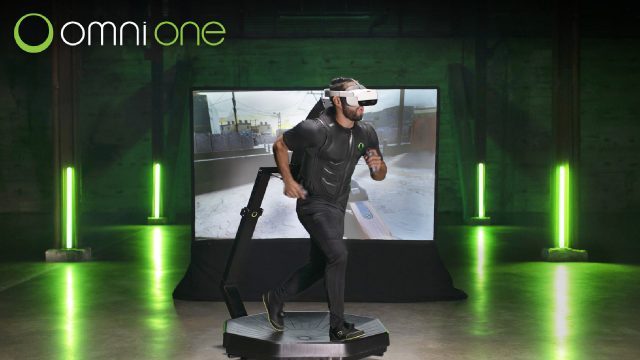Virtuix, the company behind the Omni VR treadmill, launched a crowd-based investment campaign late last year to support the launch of Virtuix Omni One, an at-home VR locomotion device for consumers. The campaign’s second phase (Series A-2) is nearly at its end, and Virtuix says the company has garnered $19 million from individual investors looking to get a piece of the company.
Update (May 26th, 2021): Virtuix announced today that, through the entirety of its Series A financing round, it’s secured $19 million from more than 6,500 investors. Virtuix says Mark Cuban, an original investor, increased his share in Virtuix as the company readies the launch of Omni One.
The supplemental A-2 campaign is still active, and will conclude on May 28th at 12:59 PM ET.
Update (April 6th, 2021): Viruix’s two-month crowd investment campaign is over after having attracted $14,389,147. Like many tech startups, Virtuix says its two main exit opportunities would be either going public via an initial public offering (IPO) or getting acquired by a larger company.
“It’s hard to say which is more likely, and we’re not allowed by the SEC to provide ROI or time estimates, but in any case, both would be a major success for our investors,” the company says.
Original Article (October 7th, 2020): Omni One is a consumer version of the Omni that Virtuix says is optimized for home use, including a light frame, foldable body for easy storage, and a freedom of movement that boasts walking, running, crouching and jumping. All of this is done by moving your feet on a low-friction parabolic surface that requires special low-friction shoes.
In contrast to the company’s commercial Omni, which it sells to location-based entertainment facilities, the consumer version has done away with the support ring, but there’s a few other things that have changed too.
With the Omni One package, Virtuix says it will include a standalone VR headset, which in the promo material is a Pico Neo 2. Granted, users can also connect Omni One to a PC and play PC-based VR games using their own headsets, however the company is putting forward a complete package that “just works out-of-the-box,” Omni CEO and co-founder Jan Goetgeluk says.
Although it’s uncertain precisely which standalone headset will ship with Omni One, the company will be pitching their own app store with games guaranteed to support the VR treadmill. This comes part and parcel with an obligatory monthly subscription called ‘Omni Online’ for online play, similar to Xbox Live and PS Plus.
Unlike most crowdfunding campaigns, which typically work as pre-orders, Virtuix is accepting reservations from interested parties via a Regulation A funding campaign. The company has been testing the waters for such a crowdfunded equity investment ever since the US government eased investment rules via the JOBS act, which allows the general public to invest in private companies.
That said, the lowest possible investment is $1,000, which incentivizes people with a 20% discount when buying an Omni One system ($400 discount) or Omni One dev kit ($200 discount). Investing in the first week will double that discount, coming to a total of $800 off the Omni One or $400 off the Omni One dev kit.
Virtuix says Omni One is slated to release sometime in Q2 of 2021 priced at $1,995. According to The Verge, the developer kit will sell for $995, however it will lack access to the Omni game store and the included VR headset.
Having tried the original commercial Omni several times myself over the years, and also its main China-based competitor Kat Walk VR, it’s safe to say that using these type of low friction VR locomotion devices can definitely be awkward at first. It’s not exactly comparable to walking naturally, as you slide your feet forward and forcefully turn against the weight of a constrictor bar (or in Omni Pro’s case a support ring) to turn in-game. I’ll admit that I don’t own any such VR treadmill though, both for the associated price tag and space requirements, however it’s clear Virtuix is trying to change that here with its new, slimmed-down Omni One.
And it seems the early bird investment strategy has worked fairly well so far. At the time of this writing the company has already made it halfway to its overall minimum goal of $1 million. You can check out more funding tiers and specifics around the investment crowdfunding campaign here.
Check out the company’s SeedInvest campaign pitch below:




